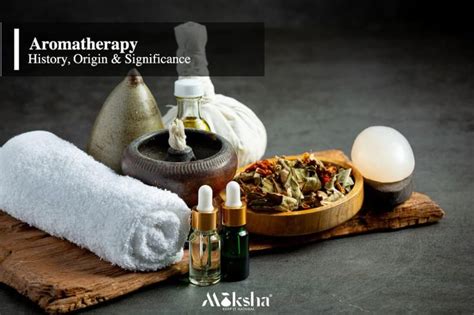Introduction:
Medicinal aromatherapy (mA therapy) has emerged as a holistic and complementary approach to healthcare, utilizing the therapeutic properties of essential oils derived from plants and flowers. These aromatic compounds have been known for centuries for their ability to influence physical, emotional, and spiritual well-being. mA therapy promotes natural healing processes, provides pain relief, and supports overall wellness.

Definition of mA Therapist:
mA therapists are healthcare professionals who specialize in the application of essential oils for medicinal purposes. They possess a profound understanding of the therapeutic properties of essential oils, their safe and effective use, and how to incorporate them into comprehensive treatment plans. Many mA therapists are certified by reputable organizations such as the National Association for Holistic Aromatherapy (NAHA) or the Alliance of International Aromatherapists (AIA).
Pain Management with mA Therapy:
Chronic pain is a significant problem, affecting millions of people worldwide. mA therapy offers a non-invasive and effective approach to pain management. Essential oils like lavender, peppermint, and rosemary have analgesic properties that can reduce inflammation and relieve discomfort. A study published in the Journal of Pain and Symptom Management found that mA therapy was effective in reducing pain and improving sleep quality in patients with osteoarthritis.
Emotional and Psychological Benefits:
Beyond physical pain relief, mA therapy also addresses emotional and psychological concerns. Essential oils like bergamot, rose, and ylang-ylang have calming and mood-boosting effects. Research from the University of Vienna suggests that mA therapy using lavender oil can reduce anxiety and promote relaxation.
Boosting Immunity and Overall Wellness:
Essential oils contain natural antimicrobial and antiviral properties. mA therapy can strengthen the immune system and help fight off infections. A study by the University of Southampton found that inhaling eucalyptus oil significantly reduced the risk of catching colds and the flu. Additionally, mA therapy can promote relaxation, reduce stress levels, encourage restful sleep, and improve cognitive function.
Applications of mA Therapy:
mA therapy has a wide range of applications both in clinical settings and for personal use. It is commonly used for:
- Pain management
- Stress reduction
- Anxiety relief
- Sleep disturbances
- Mood disorders
- Immune support
- Skin care
- Wound healing
Motivations for Seeking mA Therapy:
- Chronic pain
- Difficulty sleeping
- Anxiety and stress
- Weak immune system
- Skin problems
- Desire for natural healing methods
Pain Points Addressed by mA Therapy:
- Limited access to effective pain management options
- Side effects of conventional pain medications
- Concerns about long-term use of prescription drugs
- Ineffectiveness of traditional treatments for emotional issues
- Desire for a holistic approach to healthcare
Effective Strategies for mA Therapists:
- Thorough assessment of the patient’s needs and health history
- Selection of appropriate essential oils based on their therapeutic properties
- Development of personalized treatment plans
- Education on safe and effective use of essential oils
- Monitoring of patient progress and adjusting treatment as needed
FAQs: Exploring Common Questions about mA Therapy
Q1. What is the difference between mA therapy and aromatherapy?
A1. mA therapy is a specific branch of aromatherapy that focuses on the medicinal use of essential oils, while aromatherapy is a broader term that encompasses the use of essential oils for relaxation, mood enhancement, and personal care.
Q2. Is mA therapy safe for everyone?
A2. While mA therapy is generally safe, certain precautions should be taken, such as avoiding ingestion of essential oils and using them with caution in pregnant women, children, and individuals with certain medical conditions.
Q3. How long does it take to see results from mA therapy?
A3. The time frame for experiencing results varies depending on the individual and the condition being treated. Some people may notice immediate effects, while others may require several weeks or months of regular use.
Q4. Can mA therapy be used in combination with other treatments?
A4. Yes, mA therapy can be complementary to other medical treatments such as massage, acupuncture, and pharmaceuticals. However, it is important to consult with a healthcare professional before combining mA therapy with other modalities.
Q5. How do I find a qualified mA therapist?
A5. Look for mA therapists who are certified by reputable organizations such as NAHA or AIA. Referrals from healthcare providers, online directories, and word-of-mouth recommendations can also be helpful.
Q6. What are the potential side effects of mA therapy?
A6. Side effects are rare, but may include skin irritation, respiratory issues, or allergic reactions. Always dilute essential oils in a carrier oil before applying them to the skin, and avoid contact with eyes and mucous membranes.
Conclusion:
mA therapy
